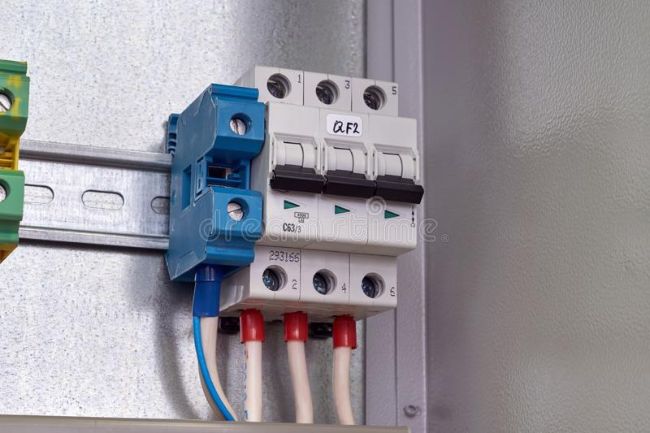Does your microwave trip your breaker now and then, and has your mind all over the place?
If yes, then you’re not alone.
Many people face the same issue, but the good news is that fixing this situation isn’t a tough nut.
And if you’re wondering why your microwave trips breaker, then the answer is pretty straightforward-
The circuit breaker is overloaded, which is the simplest explanation for your microwave tripping it.
This could occur for several reasons, including a broken microwave or too many electrical devices put into the same circuit, which is mainly the case for most people.
But the good news is- we have you covered!
Read on to learn more about why your microwave trips breaker and how you can resolve the issue.
Your Circuit Breaker May be Overloaded

As mentioned above, this is the simplest explanation for your microwave tripping the breaker.
Of course, a faulty microwave could always be the case, but it mostly happens when you plug many appliances into the same circuit.
And in worst cases, the load is a lot for the circuit to bear.
To deal with this, check the circuits in the breaker box to determine if one is marked “Microwave.”
If so, that’s fantastic!
But if not, it signifies that the microwave shares a circuit with several other kitchen equipments and does not have its course.
That’s a bummer.
Microwaves typically use between 12 and 15 amps, while circuits are often rated for 20 amps.
As a result, overload occurs when several appliances operate simultaneously on the same circuit, which in turn, trips the breaker.
So, make sure to dedicate your microwave to a breaker of its own. That’s the wisest solution to avoid tripping.
Related Reading: What Are The Signs That My Microwave Is Going Bad – Click Here To Read.
Your Microwave May be Malfunctioning
In several cases, it’s the microwave that is faulty.
Especially in cases where your microwave has a dedicated circuit, the real problem is with the appliance itself.
But how to know if that’s the case?
First, connect your microwave to a higher amp circuit, such as a garage outlet or a course that you are sure is exclusively used.
There is a strong possibility that the microwave is faulty if this breaker trips.
Or, you probably only need a separate circuit for the microwave if it does not trip the circuit breaker.
So, taking your appliance to a professional to identify the actual issue and fix it immediately is recommended.
The Capacitor May be Faulty
If your circuit is not overloaded and the microwave is not faulty, the capacitor might likely be defective.
Energy is intended to be stored in the capacitor until it is released in an amplified form.
If this component is broken, the microwave will operate with a loud noise.
A fuse will likely explode at that point, or a circuit breaker might trip.
That’s when you know it’s the capacitor’s fault.
- Disconnect the appliance from the power source
- Discharge the capacitor using an electrically insulated tool
- See whether there is a problem
You run a considerable risk of being electrocuted if you don’t do this.
After removing all connectors from the capacitor, place the ends of the multimeter tool’s probes on the capacitor’s terminals.
If you do not receive a value reading, the capacitor is defective and needs to be replaced.
An Overall Issue with the Electrical Supply

Another significant reason your microwave may be tripping the breaker could be an issue with the main electrical supply, which can’t be overlooked.
In this case, check your sockets for signs of burns or damage.
The plug and socket may have fused if you cannot unhook the appliance.
If so, the appliance’s electrical supply must be turned off immediately.
Next, you should try to separate them by using some force.
Or, you may contact an electrician if necessary.
Related Reading: Do I Need A Microwave Oven Of 700 Watts – Click Here To Find Out.
Why Microwave Trips Breaker – FAQs
Why is my microwave tripping the circuit breaker?
There may be two core reasons for a microwave to trip the breaker.
I.e., it consumes excessive electrical current and is not operating correctly, or the same electrical circuit is overloaded with plugged-in devices.
Why do electrical breakers trip?
Electrical breakers mainly trip when an electrical defect or the circuit is damaged.
It happens mostly when the current is in excess.
How Many amps does a Microwave require to function correctly?
A typical microwave operates well with 8.3 to 12 amps of current supply.
What to do if a dedicated circuit does not power your microwave?
If your microwave does not have a dedicated circuit, it is advisable to call an electrician to fix it professionally.
How to inspect if the door safety latch is fine?
Test the switches on the door latch with a multimeter, with the door open and closed.
